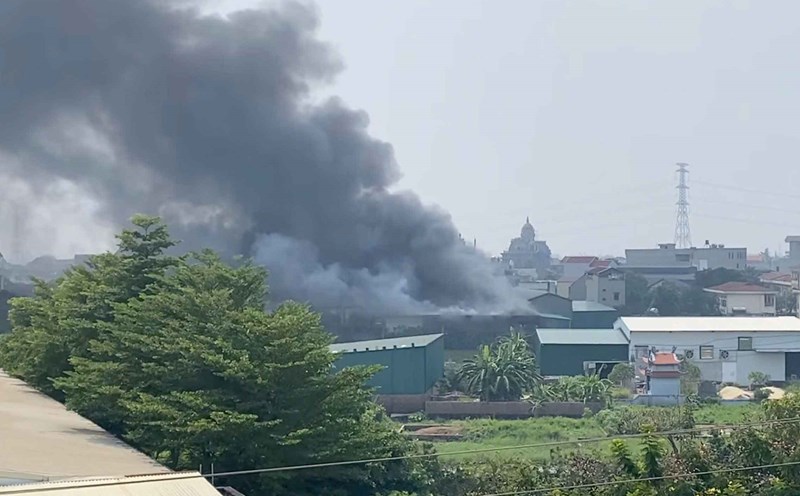Issuing invoices for each sale during peak hours is often congested and delayed
The Tax Department has just responded to the petition of the Vietnam National Petroleum Group (Petrolimex) regarding some problems in the process of issuing electronic invoices at the petroleum store system.
According to Petrolimex, retail gasoline stores have a high transaction frequency, especially during peak hours, causing congestion and delays in issuing invoices for each sale. manual entering of customer information takes a long processing time, easily causing errors and errors that require adjusting or replacing invoices. In addition, the EGAS system and data transmission network sometimes encounter problems such as storms and equipment failure, making it impossible to create invoices immediately, forcing manual recording when the system reports an error of D37.
Petrolimex also said that there were cases where customers changed paymenttors after receiving the goods, causing the issuance of invoices to be interrupted for up to 20 minutes. At some early days, invoices in the "send-in" state could not be converted to "acceptable", making it impossible for businesses to adjust or replace invoices. According to this group, the reason is that the tax authority's system is slow to handle.
In response to the above reflections, the Tax Department cited the provisions of Point i, Clause 4, Article 9 of Decree 123/2020/ND-CP, accordingly, the time to prepare electronic invoices for the sale of petroleum at retail stores is the time to end the sale at each sale.
At the same time, Clause 13, Article 1 of Decree 70/2025/ND-CP clearly stipulates the replacement and adjustment of electronic invoices. In case of detecting incorrect invoices - including electronic invoices with codes or without codes of the tax authority, the data must be sent to the tax authority - the seller for handling as follows:
If the buyer's name or address is only wrong but the tax code and other contents are not wrong, the seller will notify the buyer about the incorrect invoice, there is no need to re-cast a new invoice, and at the same time notify the tax authority according to the prescribed form.
If the tax code, amount, tax rate, tax money or goods are not listed in the correct order and quality, the seller can choose one of two ways:
Create an adjusted electronic invoice with the words "Adjust the invoice for the Form... symbol... number... date... month... year...".
Or create an electronic invoice to replace it with the words "Instead of invoices For example... symbol... number... date... month... year...".
The seller signs the number on the new electronic invoice, then sends it to the buyer (for invoices without a code) or sends it to the tax authority to issue a code before sending it to the buyer (for invoices with a code).
Before adjusting or replacing the incorrect invoice, if the buyer is a business, household or individual, the two parties must make a written agreement stating the incorrect error. If the buyer is an individual, the seller only needs to notify directly or post on the website (if any). This agreement document must be kept for presentation upon request for inspection.
Regarding the reflection on system errors, the Tax Department said that it has coordinated with the data transmission unit of Petrolimex to handle them immediately at the time of counter-examination; at the same time, continue to research and perfect technical solutions to improve the effectiveness of receiving and processing electronic invoices, ensuring stable operations for businesses.
Difficulties with the regulation of issuing invoices for no more than 7 days
Previously, Petrolimex also reported difficulties with the regulation of issuing invoices for no more than 7 days. The company believes that the regulation on the time to prepare invoices for the supply of aviation fuel (opposed to big data control) no later than 07 days of the month after the month of revenue generation is difficult to meet.
For a business of import-export business of some businesses, it takes a lot of time to match data between many parties including international suppliers. The time frame for issuing invoices at the latest 07 days of the following month is difficult to meet because businesses have to rely heavily on international partners, Petrolimex emphasized.
Regarding this issue, the Tax Department said that Article 90 of the Law on Tax Administration No. 38/2019/QH14 stipulates that when selling goods and providing services, sellers must make an electronic invoice to deliver to the buyer, regardless of the value of each sale of goods or service.
Decree No. 70/2025/ND-CP dated March 20, 2025 stipulates that the issuance of invoices for no more than 07 days is determined according to the contract period to be the basis for calculating the amount of goods and services provided based on the agreement between the seller and the service provider and the buyer.
The Tax Department recommends that the Group study the above regulation to determine the time of issuing invoices.











